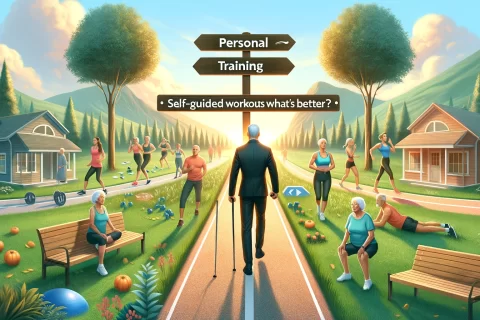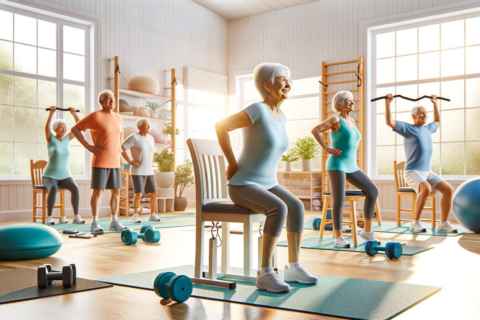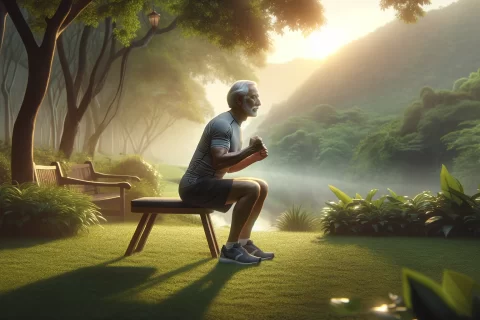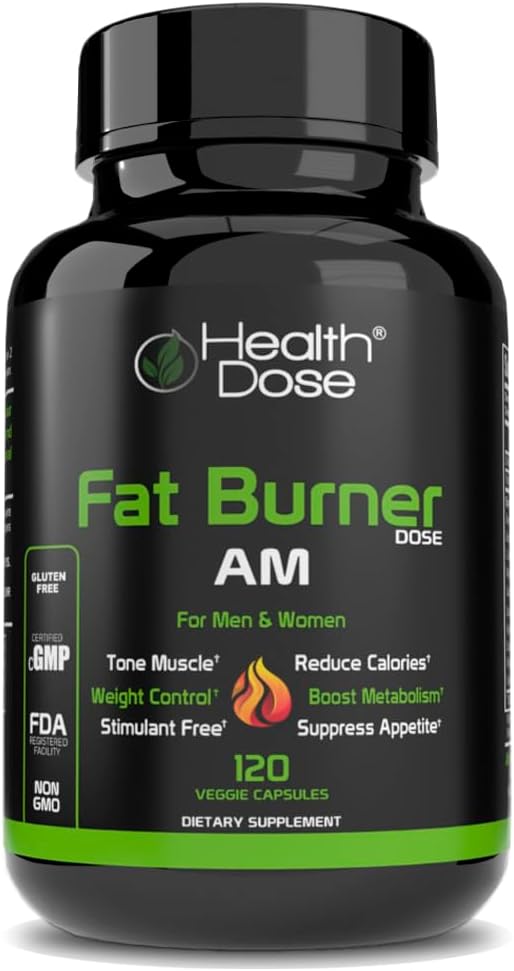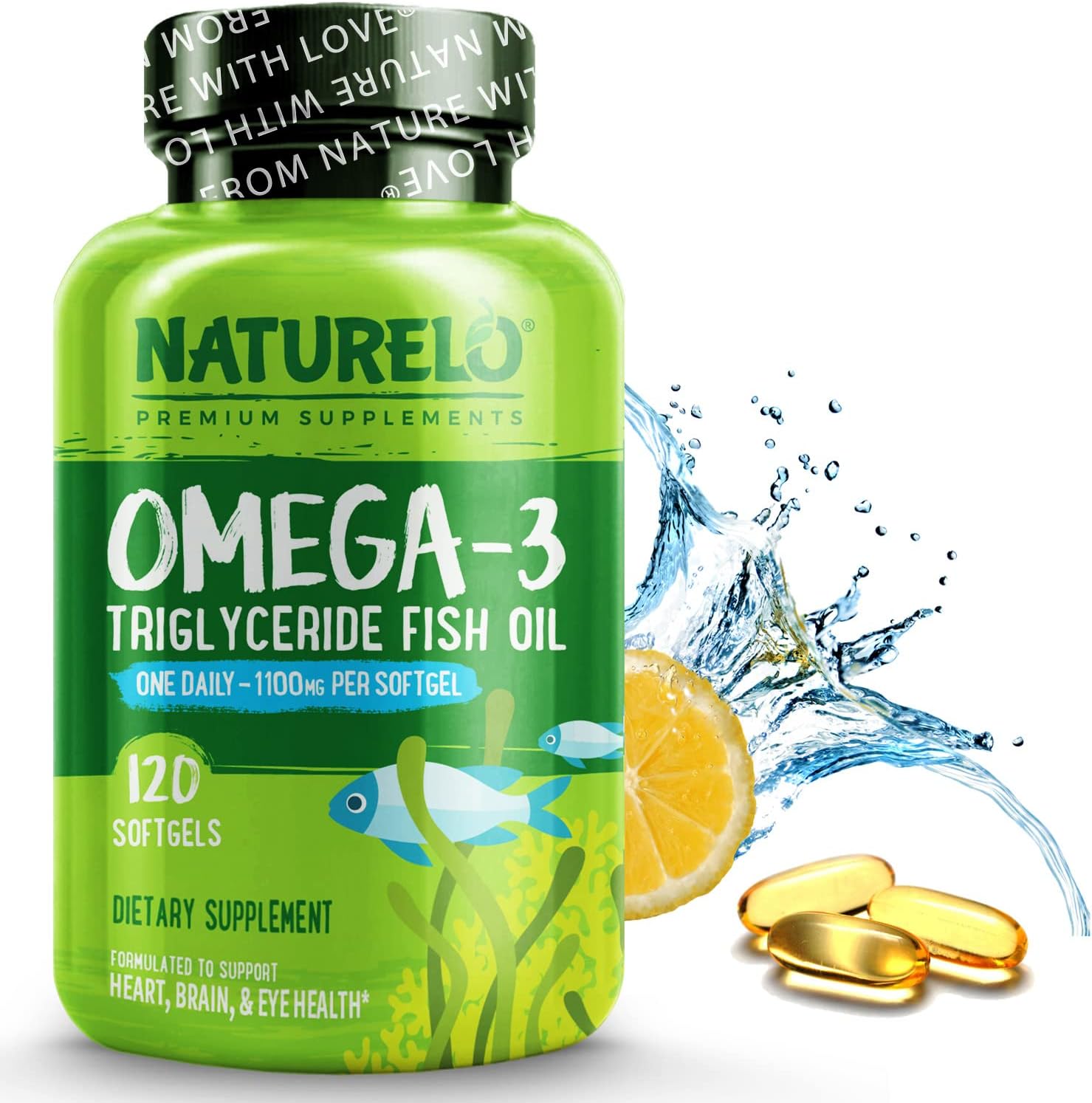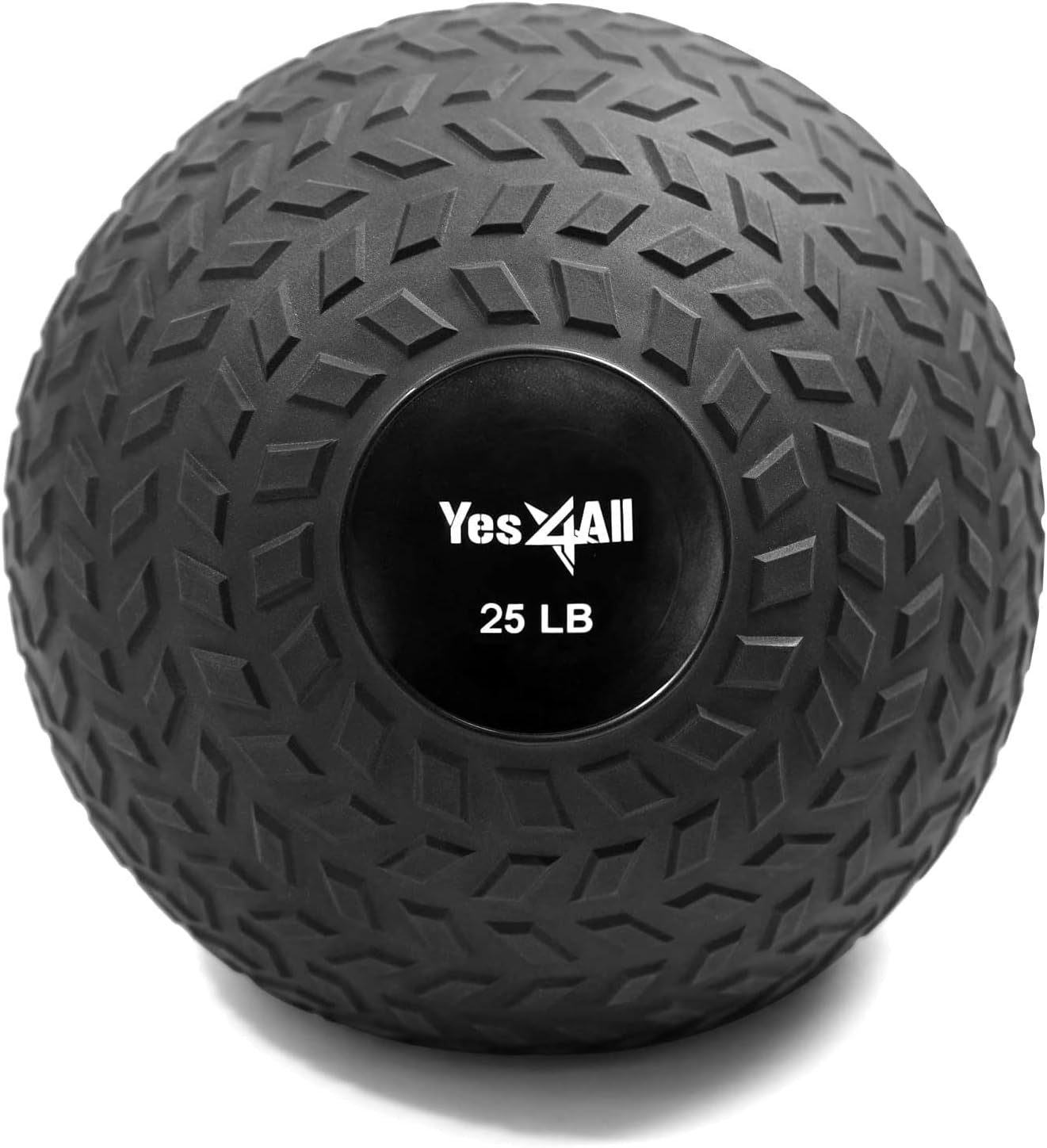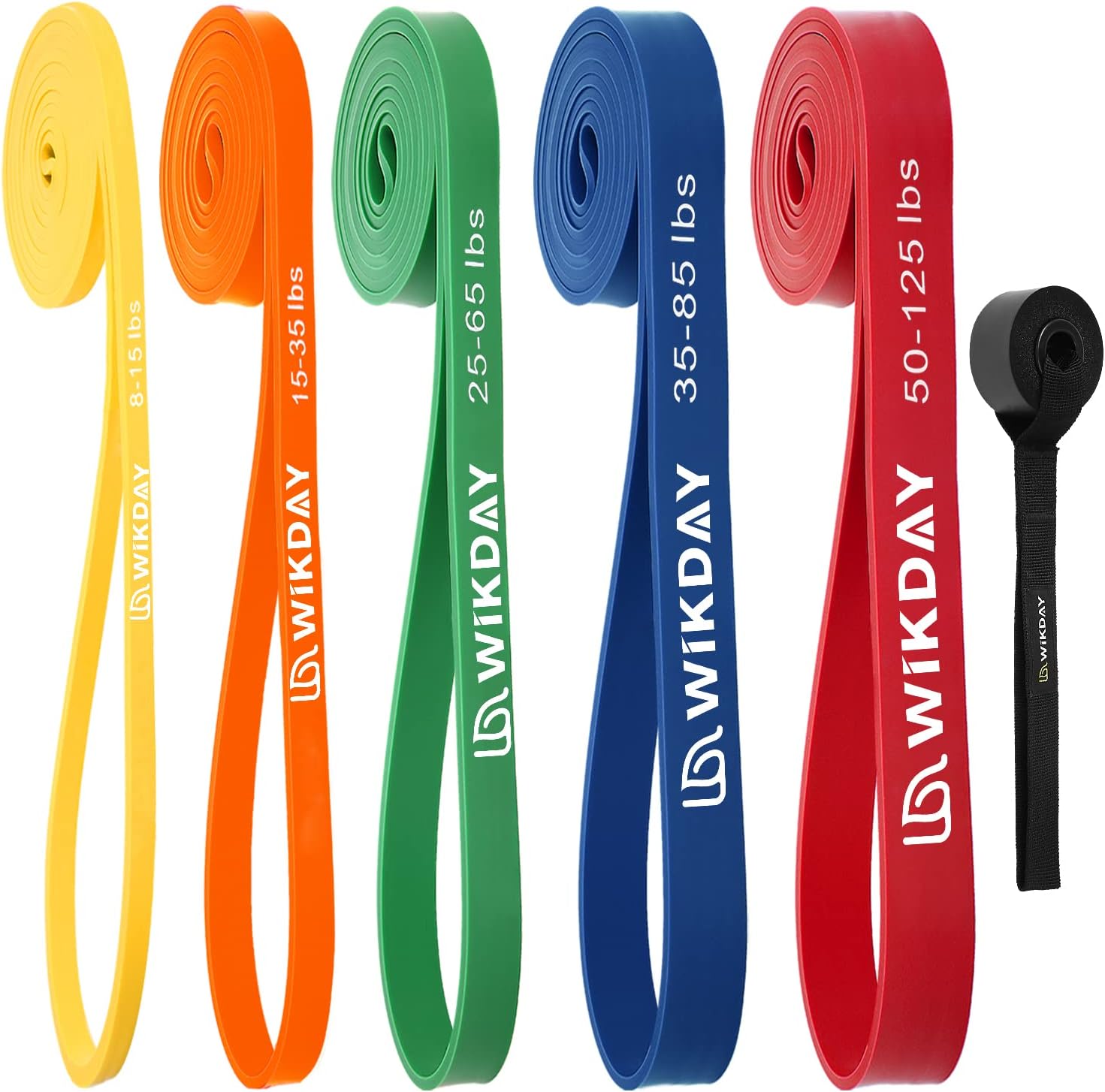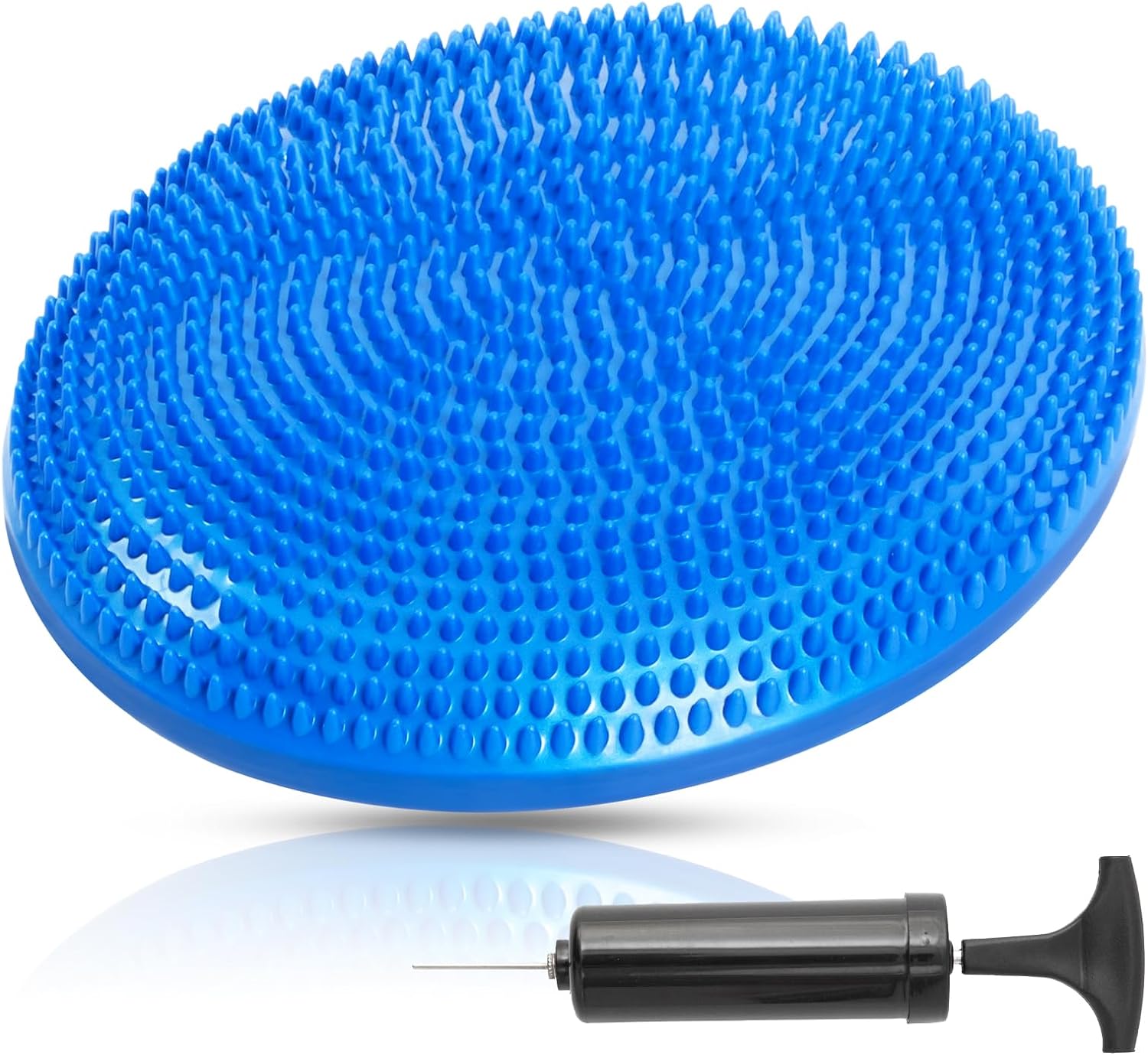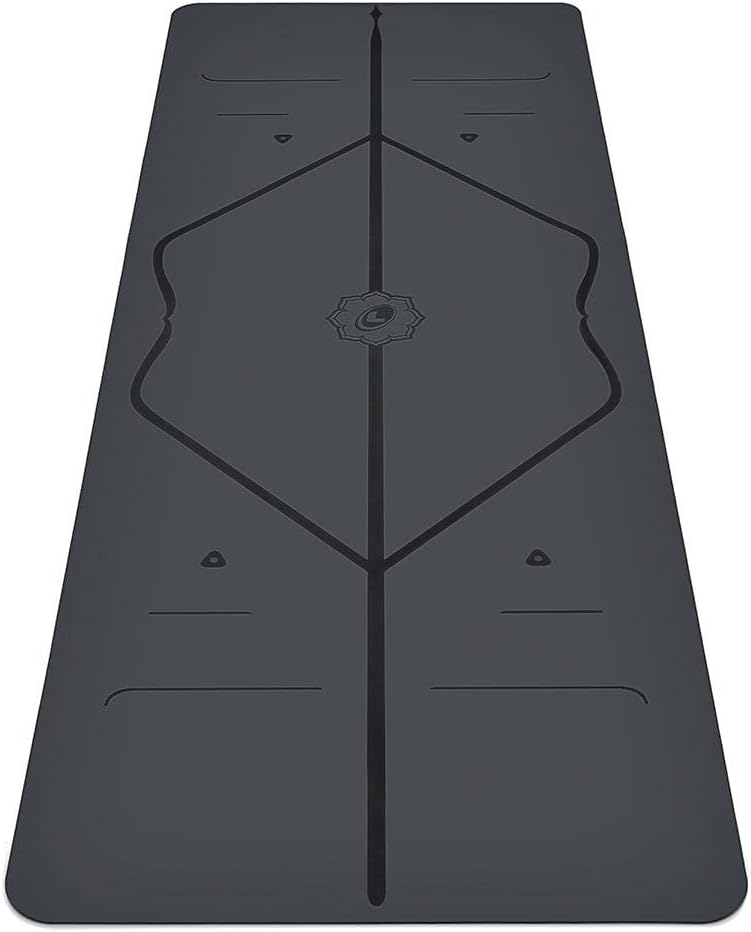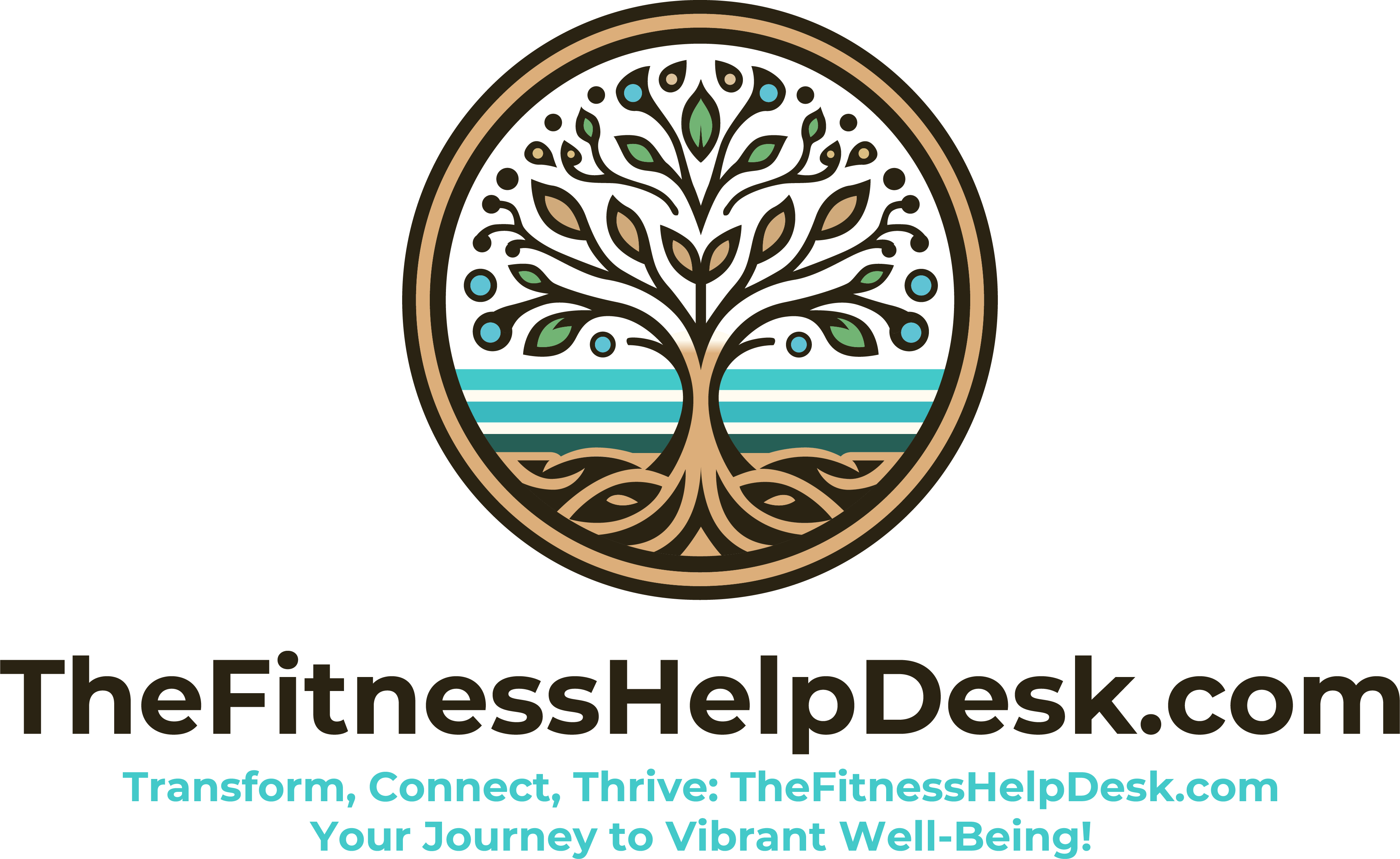Introduction
Discover the critical role of vitamin D in senior health with our comprehensive guide. As we age, maintaining adequate levels of the “sunshine vitamin” becomes paramount in safeguarding against bone loss, muscle weakness, and other age-related issues. This article explores why vitamin D is important for seniors, detailing its benefits, the risks of deficiency, and effective strategies to ensure optimal levels. Join us as we delve into how seniors can enhance their overall health and well-being by prioritizing vitamin D through diet, supplements, and lifestyle adjustments, ensuring a robust and active life in the golden years.
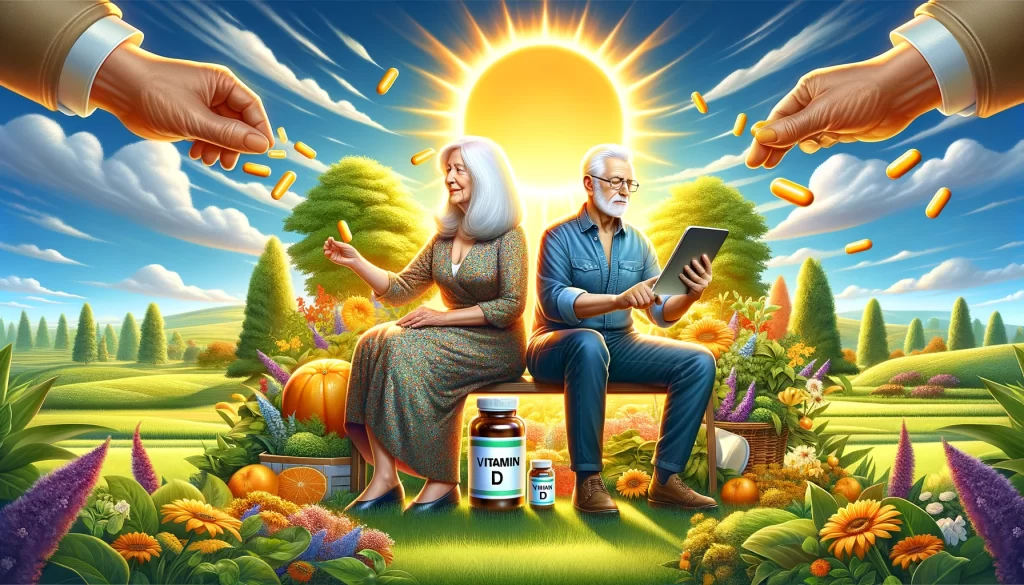
Vitamin D, often referred to as the “sunshine vitamin,” plays a crucial role in maintaining overall health, especially as we age. For seniors, understanding why vitamin D is important can be the key to enhancing quality of life and preventing various age-related issues. In this comprehensive guide, we’ll explore the multifaceted benefits of vitamin D, how seniors can ensure adequate intake, and the potential risks of deficiency.
What is Vitamin D?
Vitamin D is a crucial nutrient that plays a significant role in numerous bodily functions. It’s unique among vitamins because it can be synthesized by the body upon exposure to sunlight, specifically ultraviolet B (UVB) rays. This process occurs in the skin and then undergoes further modifications in the liver and kidneys to form the active form of vitamin D that the body can use.
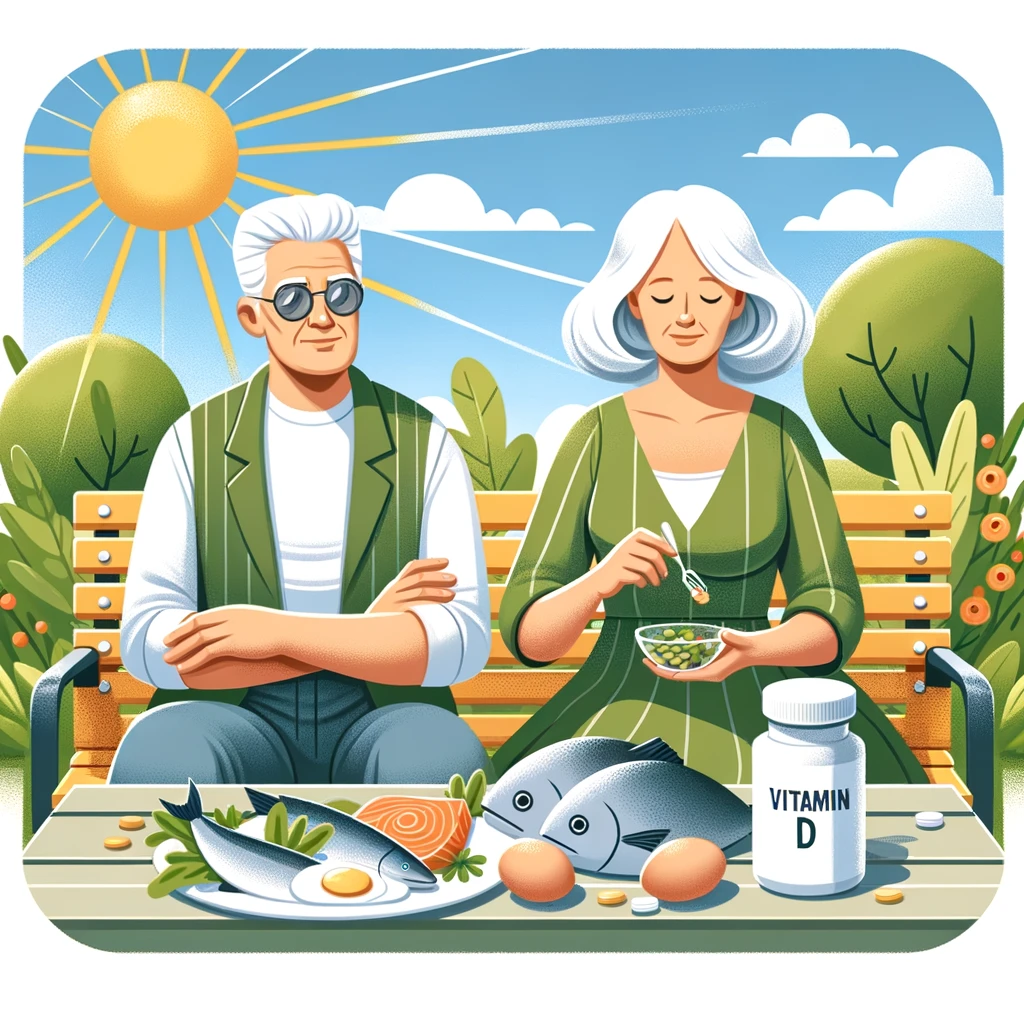
- Steroid Hormone Function: Unlike other vitamins, vitamin D functions like a steroid hormone in the body. It is involved in calcium absorption, immune function, and bone health, among other roles.
- Sources of Vitamin D: While sunlight is a primary source, vitamin D can also be obtained from certain foods and supplements. This is particularly important for seniors, who may have limited exposure to sunlight or whose bodies may not synthesize vitamin D as efficiently.
Why is Vitamin D Important for Seniors?
For seniors, vitamin D holds particular importance for several reasons:
Bone Health
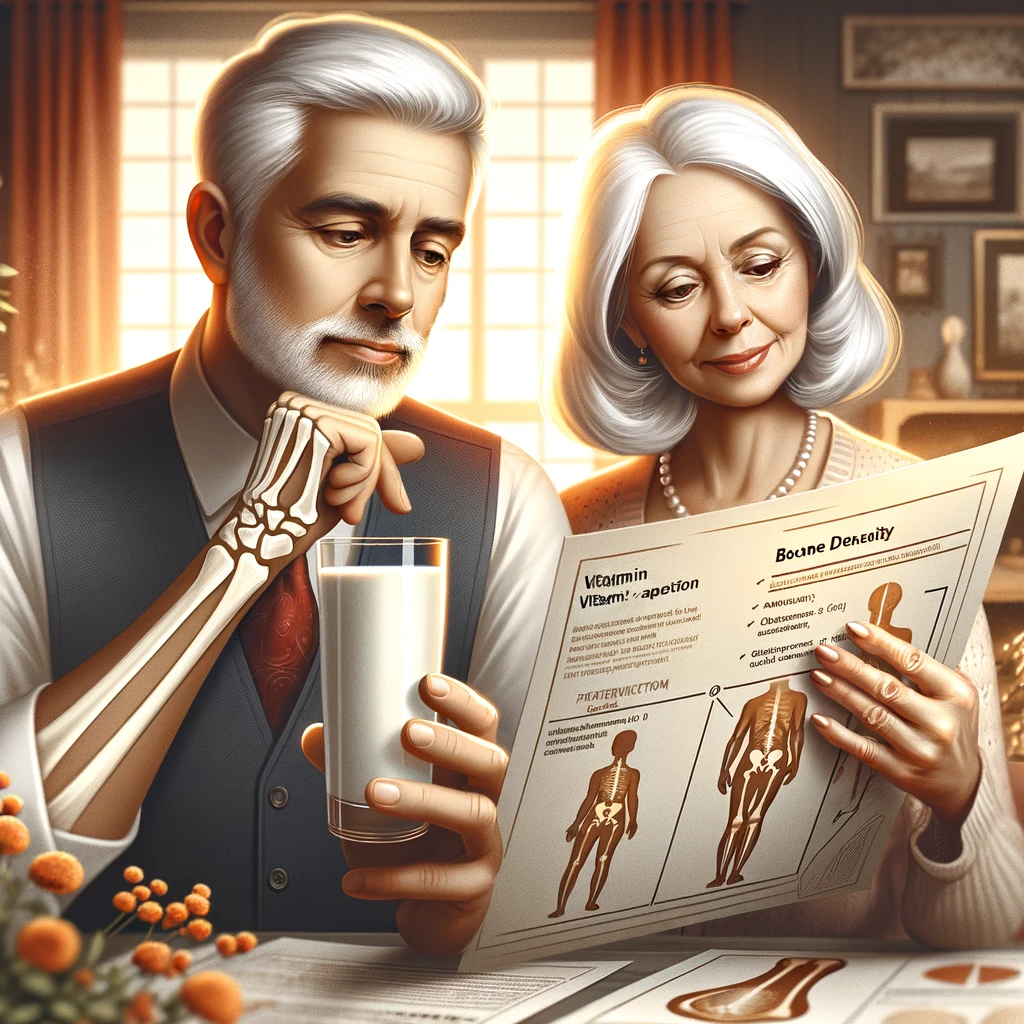
- Essential for Calcium Absorption: Vitamin D is fundamental for calcium absorption in the gut, which is crucial for forming and maintaining strong bones. As seniors are at a higher risk for osteoporosis and bone fractures, maintaining adequate vitamin D levels can prevent these conditions by ensuring stronger bones.
- Prevents Bone Loss: With aging, the risk of bone density loss increases, but vitamin D can help slow this process, preserving bone mass and reducing the likelihood of fractures.
Muscle Function
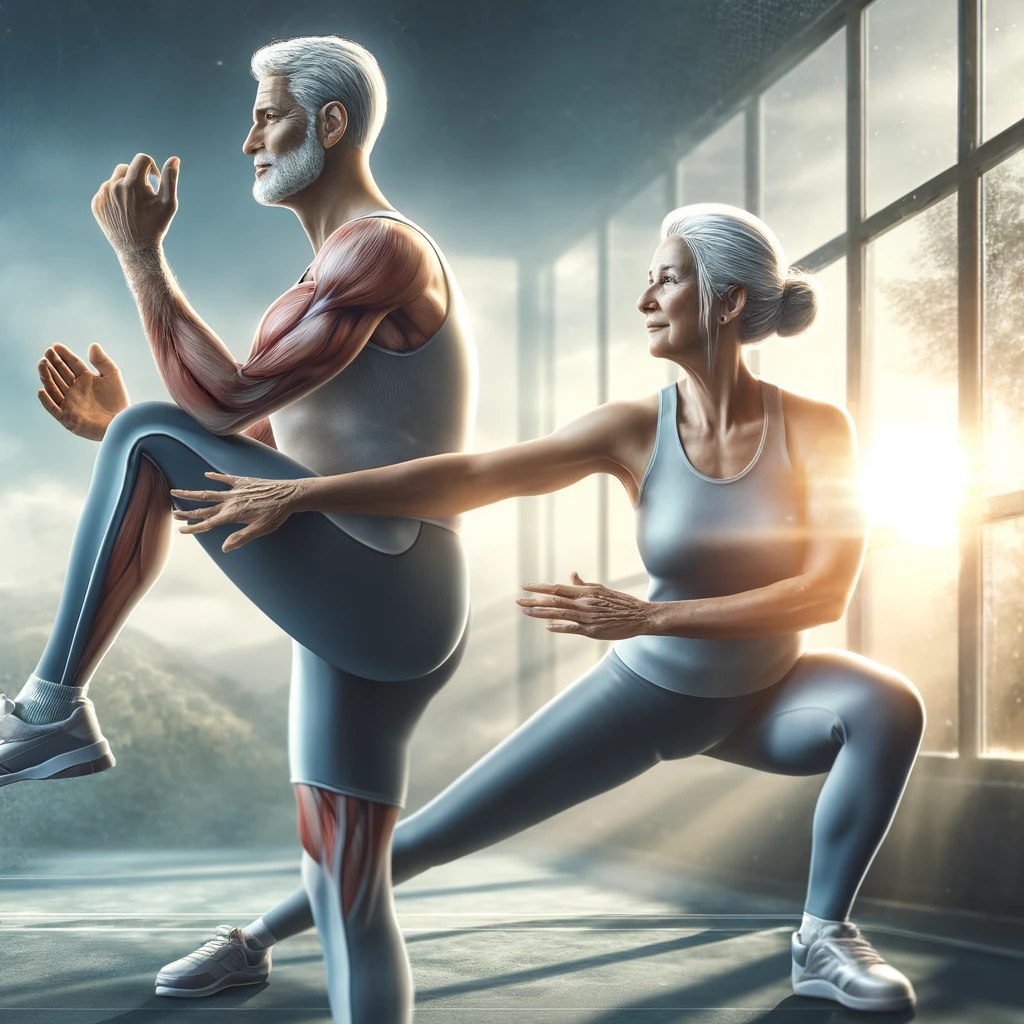
- Enhances Muscle Efficiency: Vitamin D is vital for the efficient functioning of muscles. Adequate levels help maintain muscle strength, which is crucial for mobility and balance, reducing the risk of falls and related injuries in seniors.
- Supports Muscle Recovery: Recovery from muscle strain or injury can be slower in older adults. Vitamin D plays a role in muscle repair and regeneration, helping seniors maintain muscle health and overall physical activity.
Immune Support

- Boosts Immune Health: Vitamin D is known to enhance the pathogen-fighting effects of monocytes and macrophages — white blood cells that are important parts of your immune defense — and reduces inflammation.
- Reduces Risk of Autoimmune Diseases: Adequate vitamin D levels are associated with a reduced risk of several autoimmune diseases, such as rheumatoid arthritis and multiple sclerosis, which are more common in seniors.
Mental Health
- Cognitive Function: There is growing evidence that vitamin D may help protect against a decline in cognitive function. Getting enough vitamin D can keep brain cells healthy, supporting overall brain health.
- Mood Regulation: Vitamin D deficiency has been linked to an increased risk of mood disorders, including depression and anxiety. Maintaining sufficient levels can improve mood and enhance the quality of life in elderly populations.

Each of these points illustrates why vitamin D is not merely beneficial but essential for seniors, impacting various aspects of health that contribute directly to a higher quality of life and longer independence. Ensuring adequate intake and proper levels of this vitamin can significantly improve the physiological and psychological aspects of aging.
The Risks of Vitamin D Deficiency in Seniors
Vitamin D deficiency is a prevalent issue among older adults, primarily due to decreased skin efficiency in synthesizing the vitamin and limited exposure to sunlight. The risks associated with low vitamin D levels are significant:
Increased Bone Fractures
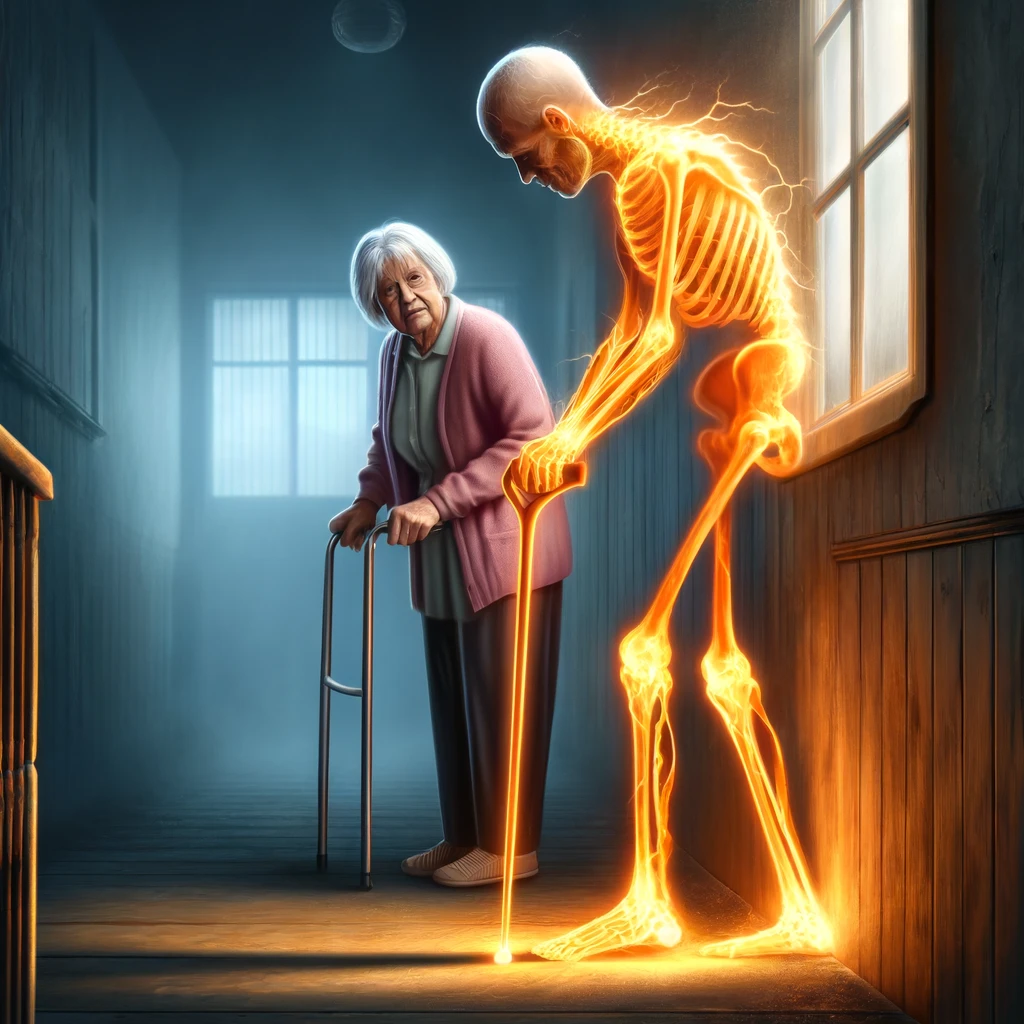
- Weakened Bone Structure: Vitamin D deficiency leads to insufficient calcium absorption, weakening the bones and increasing the risk of fractures. For seniors, who are already susceptible to osteoporosis, this can mean a significantly higher risk of painful and often debilitating bone breaks.
- Heightened Fall Risk: Weak bones contribute to less stability and balance, heightening the risk of falls. Falls are a leading cause of injury among seniors, and preventing vitamin D deficiency is a crucial step in fall prevention.
Muscle Weakness
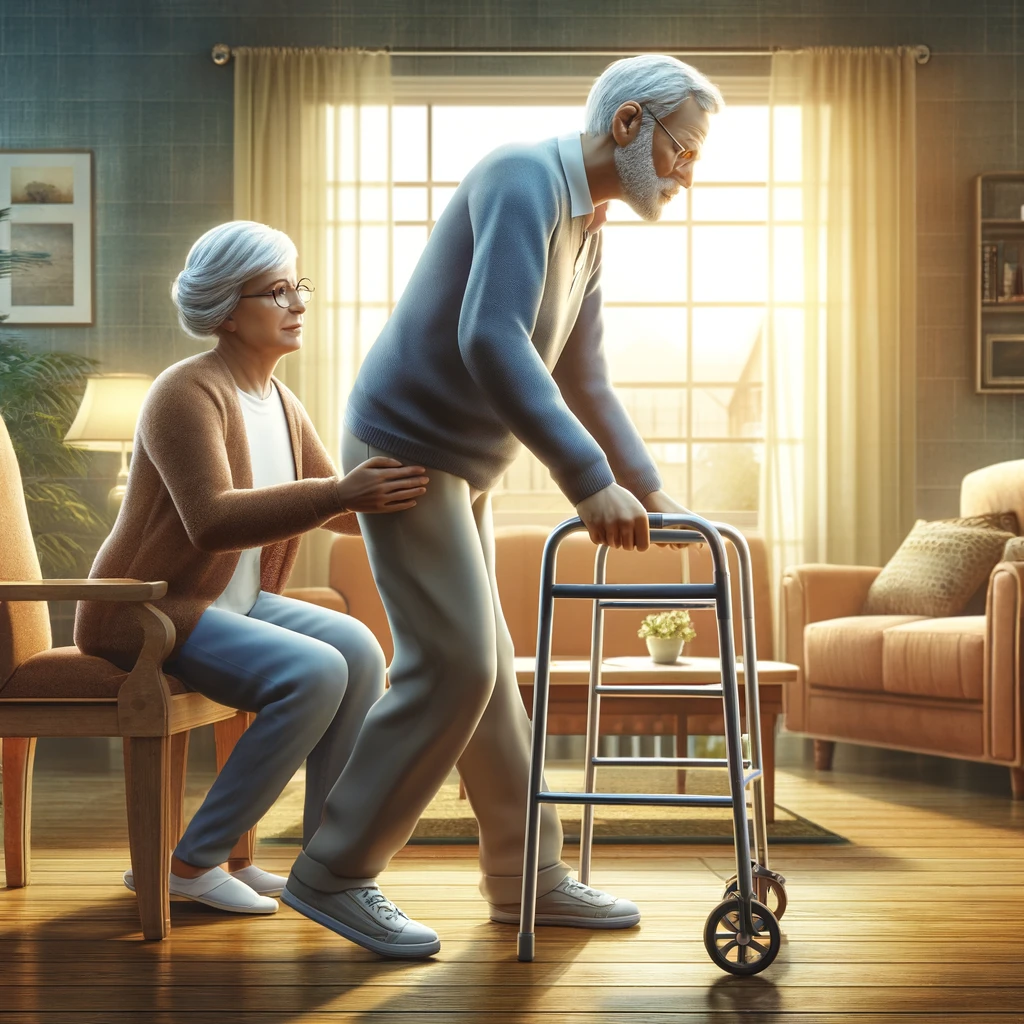
- Reduced Muscle Function: Without adequate vitamin D, muscle strength deteriorates, which can lead to difficulties in everyday activities such as walking, climbing stairs, and maintaining balance.
- Increased Dependency: Muscle weakness can result in greater dependency on others for daily tasks, affecting a senior’s independence and quality of life.
Higher Risk of Chronic Diseases

- Cardiovascular Diseases: Vitamin D deficiency has been linked to an increased risk of heart diseases, including heart failure and stroke. Maintaining adequate vitamin D levels is crucial for cardiovascular health.
- Diabetes: Insufficient vitamin D levels can influence the secretion and functioning of insulin, thereby affecting glucose metabolism and potentially leading to type 2 diabetes, a common condition in seniors.
Cognitive Decline

- Dementia and Alzheimer’s Disease: Seniors with low levels of vitamin D have a higher likelihood of cognitive decline, which can progress to dementia or Alzheimer’s disease. Adequate vitamin D is essential for brain health and maintaining cognitive functions.
- Impaired Decision Making: Deficiency can also impact mental agility and decision-making processes, further complicating daily living and safety for seniors.
Pain Management
- Increased Chronic Pain: A lack of vitamin D can exacerbate the conditions of chronic pain, common in conditions like arthritis, by affecting bone health and muscle strength.
- Reduced Quality of Life: Chronic pain can severely impact a senior’s lifestyle, limiting mobility and activity, and leading to cycles of pain and immobility that further reduce health quality.
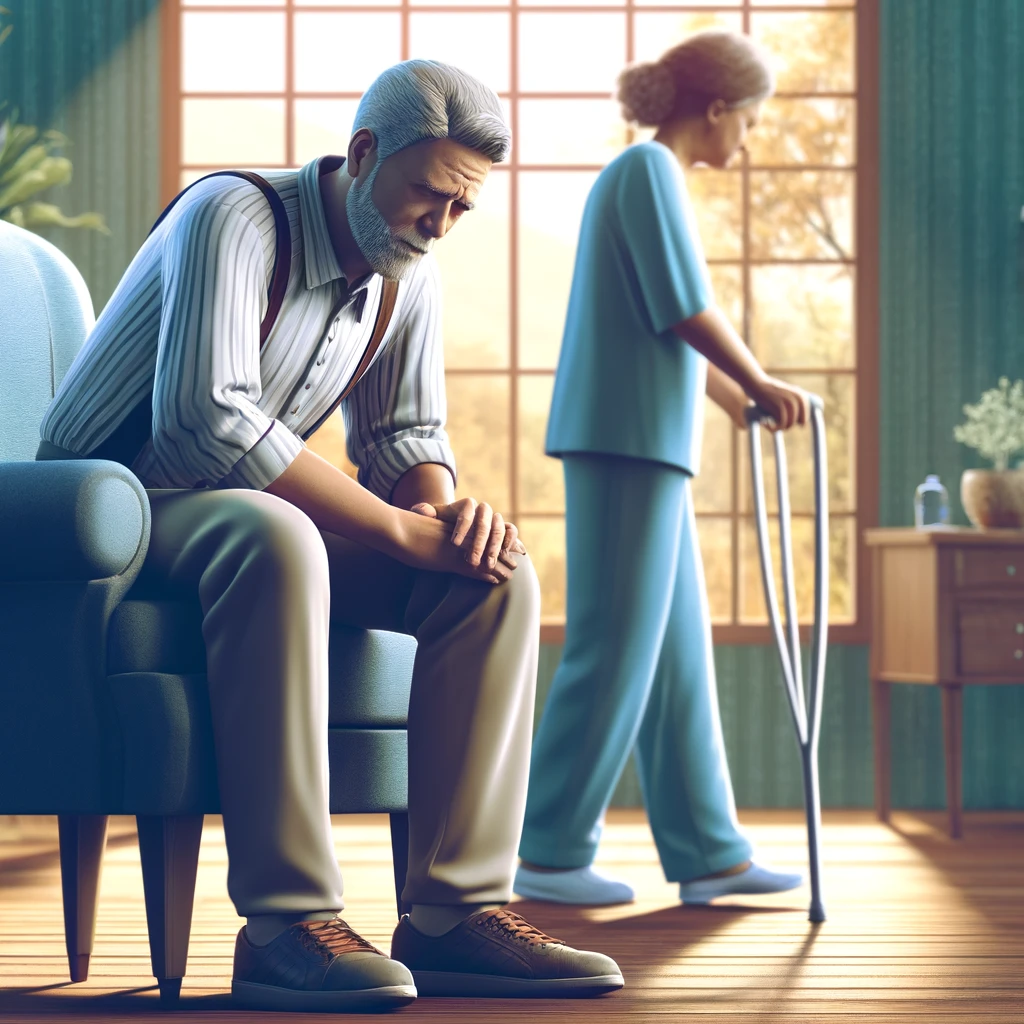
Each of these risks underscores the critical importance of maintaining sufficient vitamin D levels as a senior. Addressing vitamin D deficiency is not just about correcting a nutritional shortfall; it’s about proactively safeguarding against a host of potential health issues that can severely impact a senior’s autonomy and well-being.
How Can Seniors Boost Their Vitamin D Levels?
Safe Sun Exposure

- Moderate Sunlight Exposure: Seniors can boost their vitamin D levels by spending a brief period, typically about 10-15 minutes several times a week, in the midday sun without sunscreen. This allows the skin to produce vitamin D naturally. It’s crucial to balance this with the risk of skin damage: after a few minutes, applying sunscreen is important to prevent skin cancer.
- Seasonal Considerations: In many regions, vitamin D production decreases during the winter months when sunlight is less intense and people spend more time indoors.
Diet and Supplements
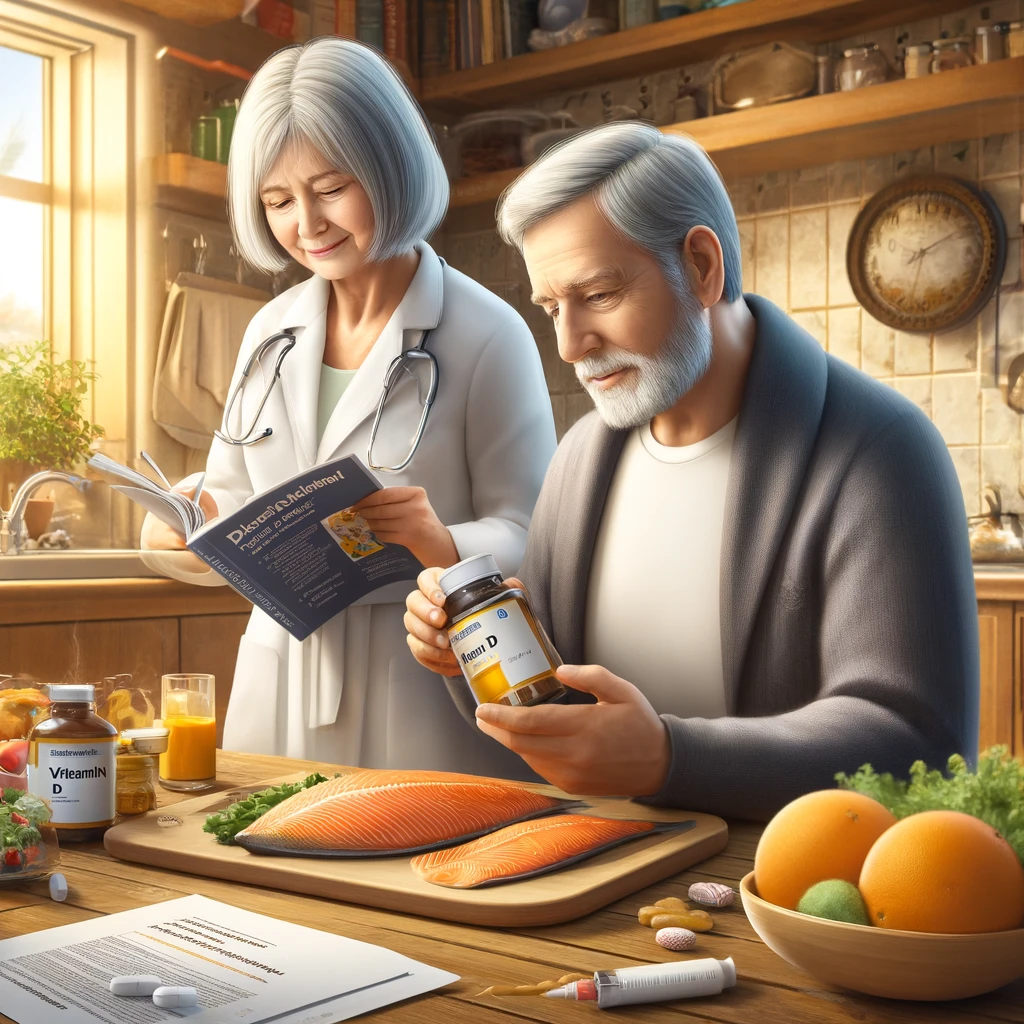
- Vitamin D-Rich Foods: Seniors should include foods high in vitamin D in their diets. These include fatty fish like salmon and mackerel, fish liver oils, and fortified foods like milk, cereal, and orange juice.
- Supplementation: Vitamin D supplements can be a reliable way to ensure adequate intake, especially for those with dietary restrictions, limited sun exposure, or absorption issues. Vitamin D3 supplements are often recommended because they are the natural form of vitamin D that the body makes from sunlight.
- Professional Guidance: It’s advisable for seniors to consult with a healthcare provider before starting any new supplement to choose the right dosage and type of vitamin D supplement, as well as to monitor levels through blood tests.
Incorporating Vitamin D into a Senior’s Lifestyle
Creating a lifestyle that ensures adequate vitamin D levels involves more than just taking supplements or getting occasional sunlight. Here are some tips:
Regular Health Check-ups
- Monitoring Vitamin D Levels: Regular blood tests are important to monitor vitamin D levels. This will help seniors and their healthcare providers adjust their diet, sun exposure, and supplement intake accordingly.
- Professional Advice: Regular consultations with a healthcare provider can offer personalized advice based on the results of these tests, ensuring seniors get the precise amount of vitamin D needed for their health status.
Balanced Diet
- Incorporating Vitamin D-Rich Foods: Seniors should strive to include more vitamin D-rich foods in their diet. This includes not only fatty fish and fortified dairy products but also exploring recipes and meals that incorporate egg yolks and liver, which are other good sources of vitamin D.
- Creative Cooking: Experimenting with new recipes that incorporate vitamin D-rich ingredients can make meals more interesting and nutritious, promoting better overall health and enjoyment in eating.

Outdoor Activities
- Enjoying the Outdoors: Regular outdoor activities not only boost vitamin D levels through sun exposure but also improve physical fitness and mental well-being. Activities could include walking, gardening, or simply spending time in nature.
- Sun Safety Practices: While it’s beneficial to spend time in the sun, it’s also important to protect the skin. Seniors should balance sun exposure with safety, using sunscreen after the initial 10-15 minutes of unprotected exposure to prevent skin damage.
Educating on Importance and Methods
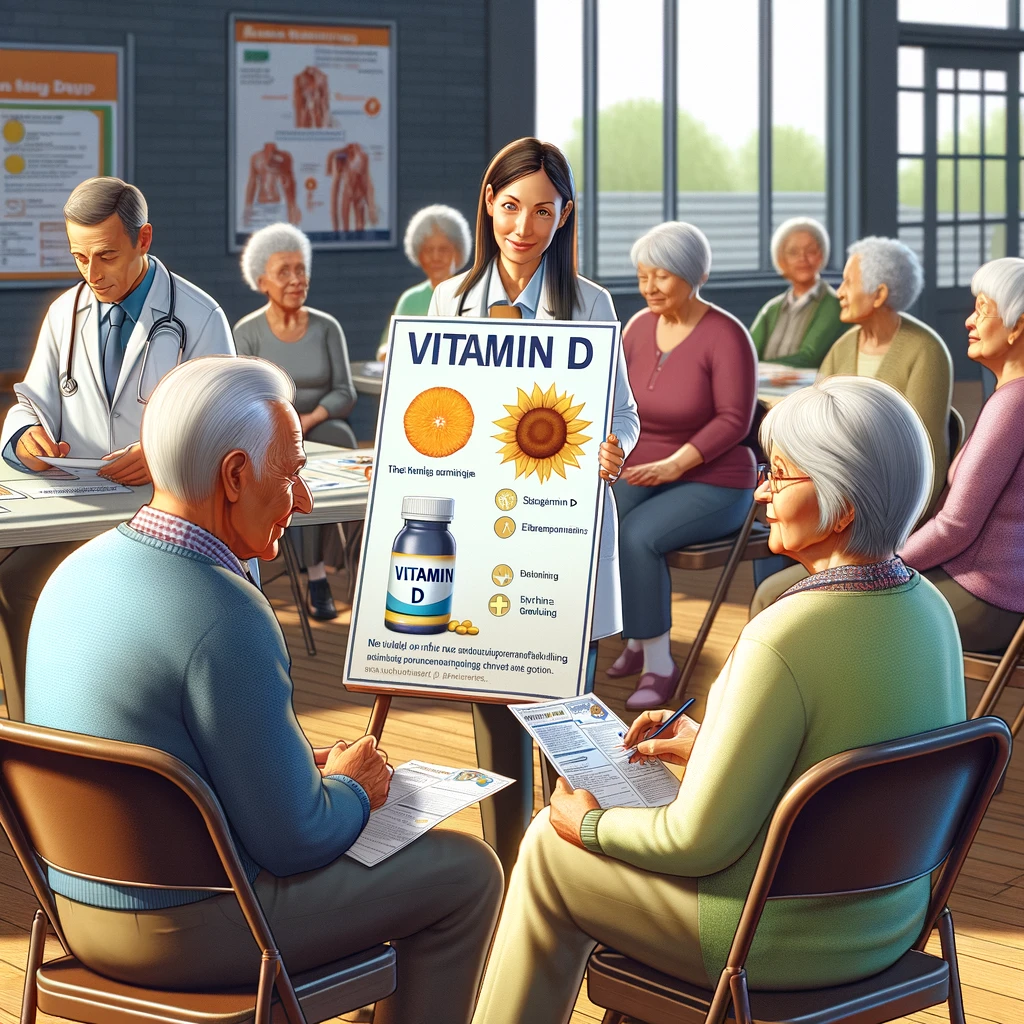
- Awareness and Understanding: Educating seniors on the importance of vitamin D and the potential consequences of deficiency can motivate them to take proactive steps in managing their vitamin D intake.
- Support Groups and Workshops: Participating in community workshops or support groups can help seniors learn more about how to effectively incorporate vitamin D into their lifestyle, including sharing tips and resources.
About Steve Allison
An experienced personal trainer and nutrition specialist for seniors with certifications from NASM, emphasizes the importance of vitamin D in maintaining senior health. His expertise helps seniors navigate the complexities of nutritional needs to enhance their overall well-being. For more insights and personalized advice, visit TheFitnessHelpDesk.com.










